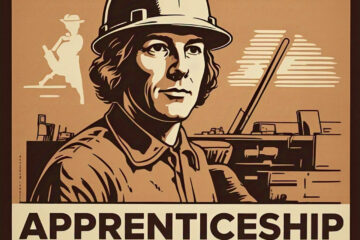
The Importance of Mechanic Training and Career Opportunities
In today’s rapidly advancing world, the role of mechanics has become increasingly essential. As vehicles, machinery, and even household appliances become more complex, skilled mechanics are needed more than ever to maintain and repair them. Whether it’s the car you drive to work or the machines powering industrial production, mechanics play a pivotal role in ensuring the smooth operation of the systems we rely on daily.
However, this growing demand highlights a crucial point: quality training for mechanics is vital not only for their own career growth but for the safety and efficiency of the industries they serve.
Why Mechanic Training is Crucial
1. Technology Evolution: The automotive and mechanical industries are in a state of constant innovation. The rise of electric vehicles (EVs), automated systems, and advanced diagnostics tools means that modern mechanics need specialized knowledge. A mechanic who was trained decades ago might struggle with today’s computerized engines, hybrid cars, or industrial robotics. Formal training keeps professionals updated on new technologies, ensuring they can diagnose and repair efficiently.
2. Safety and Efficiency: Poorly trained mechanics not only pose a risk to their own safety but to the safety of others. Faulty repairs or improper maintenance can lead to accidents, costly breakdowns, and even fatalities. Comprehensive training programs cover safety protocols, ensuring mechanics can work confidently and protect others from harm.
3. Increased Job Opportunities: The demand for well-trained mechanics is high across various sectors. Automotive repair, aviation, industrial machinery, and marine engines are just a few of the areas where skilled mechanics are indispensable. As the global fleet of vehicles continues to expand and as manufacturing industries grow, trained mechanics have no shortage of job opportunities.
4. Certification and Licensing: Many jurisdictions and industries require mechanics to obtain certifications or licenses to practice. For example, in the automotive field, certifications like the ASE (Automotive Service Excellence) validate a mechanic’s expertise and can open the door to higher-paying positions. Quality training programs help prepare individuals for these certifications.
How Much Money Do Mechanics Make?
Mechanic salaries can vary significantly based on factors such as location, specialization, and experience. Here’s a breakdown of what mechanics in different fields can expect to earn:
1. Automotive Mechanics: The most common type of mechanic is the automotive technician, specializing in cars and light trucks. According to the U.S. Bureau of Labor Statistics, the median annual wage for automotive service technicians was around $47,000 in 2023. However, highly skilled mechanics with specialized training, such as in EVs or luxury vehicles, can earn upwards of $60,000 or more annually.
2. Diesel Mechanics: Diesel mechanics, who work on trucks, buses, and heavy equipment, tend to earn more than their automotive counterparts. The median salary for diesel mechanics is typically around $53,000 per year, with top earners making over $70,000, especially in sectors like transportation and construction.
3. Aircraft Mechanics: This is one of the highest-paying fields for mechanics. Aircraft mechanics, who are responsible for maintaining airplanes and helicopters, can expect a median wage of approximately $75,000. With further certifications and experience, aircraft mechanics can earn six-figure salaries.
4. Industrial Machinery Mechanics: Those who work on factory machinery or in power plants generally earn around $60,000 per year. Due to the high stakes involved in keeping industrial operations running smoothly, experienced professionals in this field can command even higher salaries.
5. Marine Mechanics: Mechanics who specialize in boats and ships often earn between $40,000 and $60,000 annually, depending on their level of expertise and the type of vessels they work on. Marine mechanics working on commercial vessels may earn more, especially if they are involved in engine overhauls and specialized repairs.
Training: The First Step to Success
Becoming a successful mechanic doesn’t happen overnight. Most mechanics start their careers through formal vocational training programs that last between six months and two years. Many also participate in apprenticeships, where they gain hands-on experience under the guidance of experienced professionals. Once they’ve acquired basic skills, mechanics often pursue further certifications to specialize in certain areas or to improve their earning potential.
Key Training Areas for Mechanics:
- Basic Mechanical Knowledge: Covers engine repair, brake systems, transmission work, and other core components.
- Diagnostics: Using modern computerized tools to identify issues in a vehicle or machine.
- Specialized Training: For those interested in areas like electric vehicles, aviation, or industrial machinery.
- Safety Protocols: Mechanics must learn how to handle hazardous materials, work in confined spaces, and ensure the safety of themselves and others.
Conclusion: A Rewarding Career with a Bright Future
Mechanics are essential to keeping the world moving—literally. With the right training, mechanics can build a career that is not only fulfilling but also financially rewarding. As technology continues to advance, the demand for skilled mechanics will only increase, offering job security and opportunities for those willing to invest in their education and skills. Whether it’s in automotive repair, aviation, or industrial machinery, a career in mechanics offers a diverse range of opportunities with significant earning potential.
If you’re considering a career as a mechanic, the path forward is clear: invest in quality training, stay updated on industry advancements, and pursue certifications to maximize your earning potential in this ever-growing field.







